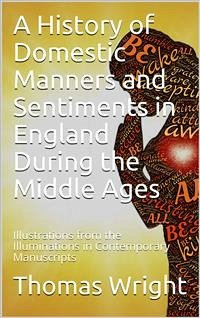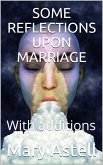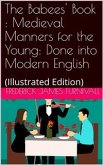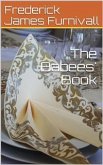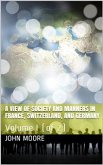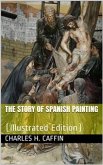Illustrations from the Illuminations in Contemporary Manuscripts
The object of the following pages is to supply what appeared to be a want in our popular literature. We have histories of England, and histories of the Middle Ages, but none of them give us a sufficient picture of the domestic manners and sentiments of our forefathers at different periods, a knowledge of which, I need hardly insist, is necessary to enable us to appreciate rightly the motives with which people acted, and the spirit which guided them.
The subject, too, must have an interest for many classes of readers, who will be glad to learn something of the manners of former days, if it were only to see the contrast with those of our own time, and to discover in them the origin of many of the characteristics of modern society.
Copious and valuable books have been published in our language on the history of costume, on that of domestic architecture, on military antiquities, on the history of religious rites and ceremonies, and on other kindred subjects, which enable the artist to clothe his personages correctly; but these would form, after all, but the disjointed skeleton of a picture, without that further, and perhaps more important, sort of information which is furnished in the following pages, and which will enable him to give life to his composition.
I have not attempted to compose a very learned or very elaborate book. The subject is an immensely wide one as regards the materials, during a large portion of the period which I include; and to treat it completely would require the close study of the whole mass of the mediæval literature of Western Europe, edited or inedited, and of the whole mass of the monuments of mediæval art. But my aim has been to bring together a sufficient number of plain facts, in a popular form, to enable the general reader to form a correct view of English manners and sentiments in the middle ages, and I can venture to claim for my book at least the merit of being the result of original research. It is not a compilation from writers who have written on the subject before.
The object of the following pages is to supply what appeared to be a want in our popular literature. We have histories of England, and histories of the Middle Ages, but none of them give us a sufficient picture of the domestic manners and sentiments of our forefathers at different periods, a knowledge of which, I need hardly insist, is necessary to enable us to appreciate rightly the motives with which people acted, and the spirit which guided them.
The subject, too, must have an interest for many classes of readers, who will be glad to learn something of the manners of former days, if it were only to see the contrast with those of our own time, and to discover in them the origin of many of the characteristics of modern society.
Copious and valuable books have been published in our language on the history of costume, on that of domestic architecture, on military antiquities, on the history of religious rites and ceremonies, and on other kindred subjects, which enable the artist to clothe his personages correctly; but these would form, after all, but the disjointed skeleton of a picture, without that further, and perhaps more important, sort of information which is furnished in the following pages, and which will enable him to give life to his composition.
I have not attempted to compose a very learned or very elaborate book. The subject is an immensely wide one as regards the materials, during a large portion of the period which I include; and to treat it completely would require the close study of the whole mass of the mediæval literature of Western Europe, edited or inedited, and of the whole mass of the monuments of mediæval art. But my aim has been to bring together a sufficient number of plain facts, in a popular form, to enable the general reader to form a correct view of English manners and sentiments in the middle ages, and I can venture to claim for my book at least the merit of being the result of original research. It is not a compilation from writers who have written on the subject before.

